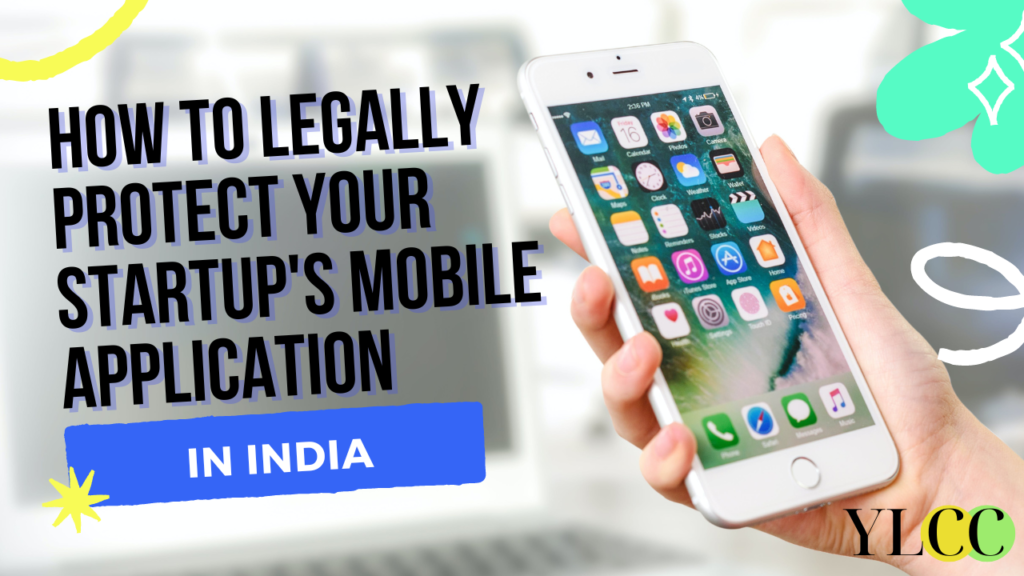
Hey there, fellow startup superheroes! So, you’ve developed an awesome mobile application for your startup, and now you want to make sure it’s legally protected in India? Well, you’re in the right place! In this guide, we’ll show you how to unleash your legal superpowers and shield your app from any villainous copycats or legal troubles. Ready to embark on this exciting journey? Let’s dive in!
Building The Mobile Application
When you’re bringing your brilliant app idea to life, it’s crucial to protect it from the get-go. Transform that idea into a fully functional app while keeping the details under wraps. Once your app is developed, you can secure copyright protection to prevent reverse engineering. Make sure that any freelancers or app development companies you work with transfer the copyrights to you upon completion of the project. After all, you want that intellectual property to be yours, don’t you?
Entering Into Non-Disclosure And Non-Compete Agreements
To keep your business idea from prying eyes, consider signing a non-disclosure agreement (NDA). This little gem ensures that anyone involved in reviewing or managing your app concept keeps it top secret. In case of a breach, you can take legal action to recover any losses you may incur. You can also include a non-compete clause, which prevents sensitive details from being used for competing businesses. It’s like having a protective force field around your company!
Trademark For Mobile Applications
Your app’s name, logo, and branding give it a unique identity in the market. That’s why it’s crucial to protect them by registering them under trademark law. Trademark registration offers numerous benefits, such as online promotion, customer identification, and brand awareness. By registering your app’s name and logo as trademarks, you ensure that no outsiders can infringe upon your brand’s identity. Your app’s goodwill will remain attached to the registered name, ensuring its protection.
Note: Remember, the concept of a mobile app itself cannot be protected. For example, a specific game, like the classic Snake game, can be protected if someone tries to duplicate it exactly. However, if someone changes it into a different type of game, it’s unlikely to receive protection. What can be protected are the name, brand, and logo. Additionally, if someone duplicates your mobile application, the app itself can be protected.
Patenting Of Mobile Apps
Traditionally, patents were associated with industrial products and processes, rather than software-based creations. But times have changed, my friends! Software-related inventions can now be eligible for patent protection if they meet the requirements of patent law. While software itself may not be protected, it can be when it’s combined with novel hardware, represents a unique invention, and is fit for industrial use. Patents are territorial, meaning they’re valid only in the jurisdiction where they’re granted.
The term of a patent lasts up to 20 years from the filing date, granting the owner exclusive rights to use, sell, and manufacture the invention. After the patent expires, others may incorporate similar features into their products and pursue other patent-qualified subject matter.

Copyright Laws For Mobile Applications
Copyrights come to the rescue when it comes to protecting the unique and creative elements of your mobile app. If your app boasts distinctive features and designs, consider obtaining copyright protection for its design elements early on. While creative works enjoy protection under copyright law without registration, it’s advisable to get your copyright registered to strengthen your defense against potential infringements by third parties.
What Can Be Protected Under Copyright Law in Mobile Applications?
- Creative elements such as images, videos, and sounds
- Literary works that are abstract and creative
- User interfaces, graphics, layouts, and images
The Armor of Terms and Conditions
Every superhero needs a suit of armor, and for your app, that means robust Terms and Conditions. These ironclad rules define the relationship between your startup and its users, protecting your rights and limiting your liabilities. Cover key aspects like user behavior, data collection, and intellectual property rights. Remember, transparency is key. Explain your app’s purpose, the data you collect, and how you safeguard user information. With solid Terms and Conditions, your startup’s app will be prepared for any legal showdown.
The Shield of Privacy
In the age of data protection, privacy is a powerful ally. Ensure your app complies with India’s data protection laws, such as the Personal Data Protection Bill. Craft a Privacy Policy that clearly communicates how you collect, store, and use user data. If your app caters to children, don’t forget to adhere to the Children’s Online Privacy Protection Act (COPPA) and obtain parental consent. Protect your users’ personal information like a fortress, and they’ll trust you to be their digital guardian.
The Alliance with App Store
Every superhero needs alliances, and in the app world, it’s with the mighty App Stores. Familiarize yourself with the guidelines of platforms like the App Store and Google Play. While these guidelines primarily protect their interests, it’s crucial to play by their rules to ensure a smooth journey for your app. Abide by their terms and conditions, adhere to content policies, and respect user privacy. When you and the App Stores unite, your app gains access to a vast user base while staying on the right side of the law.
Jurisdiction
If you plan to launch your app in international markets, it’s crucial to comply with the local laws of those countries. Consulting with a lawyer who specializes in international law can help ensure your app meets the legal requirements in each jurisdiction.
Contract Issues
Having a well-drafted application development agreement is essential. It should clearly define the responsibilities of both parties, ownership of the code, project deliverables, costs, timeline, and any confidentiality clauses or open-source software usage terms.
Conclusion
In a nutshell, my tech-savvy friends, the legal protection of mobile applications primarily revolves around safeguarding the unique aspects of the app, rather than the concept itself. In this rapidly evolving world of technology, where mobile apps have become the driving force of businesses, it’s essential for app owners to tighten their security measures and prevent crucial details from falling into the wrong hands. Working closely with an intellectual property specialist will help ensure that your mobile app receives robust protection and remains a force to be reckoned with!
This article has been written by Team YLCC. For any other queries, reach out to us at: queries.ylcc@gmail.com






